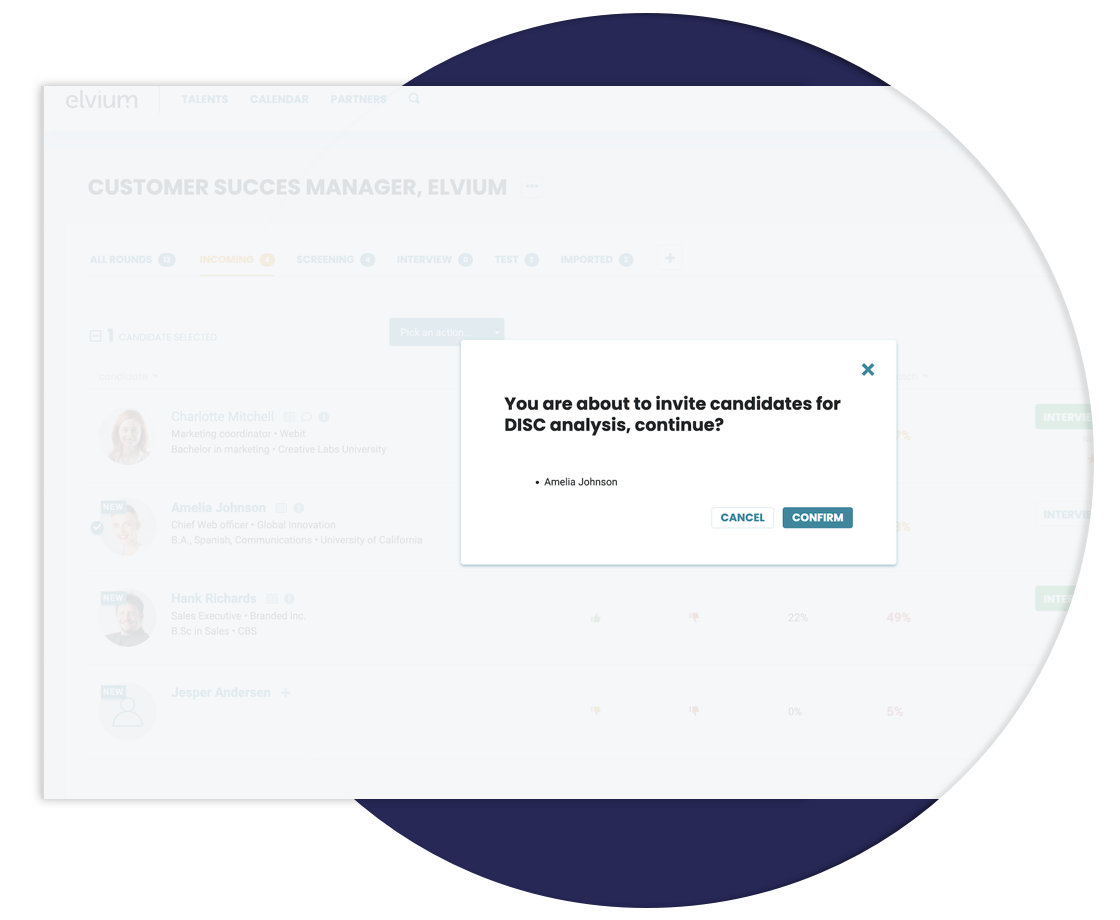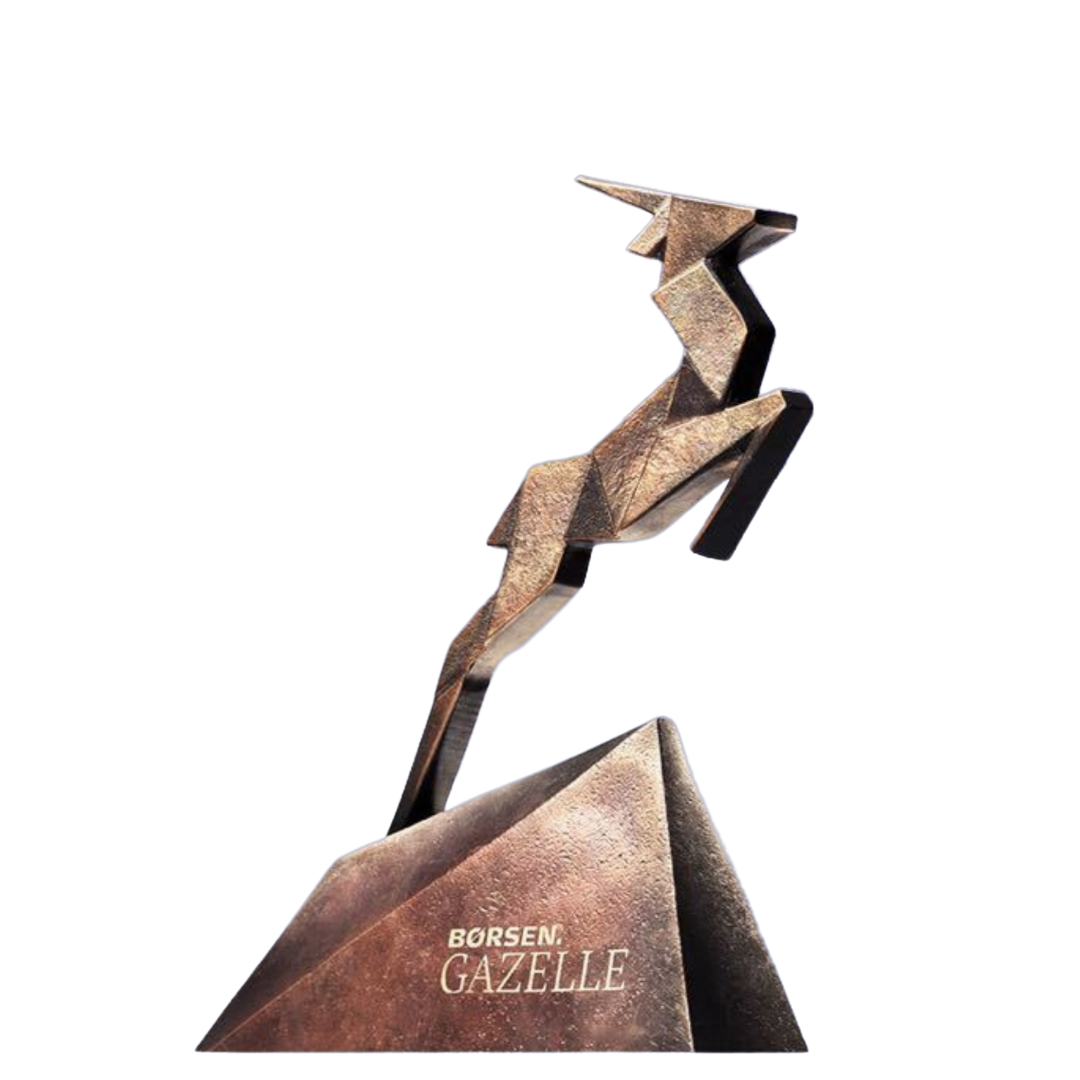DISC analysis through Elvium


An integrated solution
Med Elvium får du en fuld integreret løsning, hvor du kan invitere dine ansøgere til en DISC analyse direkte via rekrutteringssystemet. Resultaterne fra DISC analysen kommer også direkte ind og ligger på kandidatprofilen.
With a DISC analysis you get insight into:
- The personality traits you can expect from the person, and the thoughts and feelings the person may have.
- The areas on which the candidate will focus and prioritize.
- The areas the candidate will find interesting.
Minimize the number of failed recruitments
A DISC analysis tool minimizes the number of failed recruitments. This prevents a waste of resources. The analysis will also help you streamline the composition of teams, helping the employees support each other to achieve the best possible teamwork.
You can purchase huge amounts of tests, because we offer you the DISC analysis at an advantageous price.
Benefits of DISC integration:
- The text is future-oriented and positive
- The language is development-oriented
- Short question frame with high quality
- Competitive prices
- Option of own report to the candidate
Professional analysis tool
ANTES DISC is an updated and validated personal profile that shows both natural and work-related behavior. ANTES DISC is validated with a Danish norm group and is based on an easy language. The four separate behavioral tendencies have the following validation:
D: 0.89 / I: 0.87 / S: 0.87 / C: 0.87
That means you will have the best conditions to get a result that reflects Danish norms and work culture.
What is DISC? 🤔
The DISC analysis is a personality test that is based on four different personality types: D (dominant), I (influence), S (steadiness), and C (conscientiousness). The test measures a person’s way of thinking, feeling, and behaving, and can be useful for both individual and organizational purposes. The DISC analysis is one of the world’s most popular tools for creating personality profiles. DISC profiles are based on a simple system that measures both conscious and unconscious behavior in the candidate.
Why is DISC important
The DISC profile is built around the DISC model, which is a psychometric model that describes four fundamental behavior patterns. Each behavior pattern in the DISC model is represented by a color: Dominance (red), Influence (yellow), Stability (green), and Conscientiousness (blue).
This color coding is used to make it easier to understand and remember the different behavior patterns in the DISC model. It can also help visualize and compare different DISC profiles, as the colors provide a visual image of where a person scores high or low on the different behavior patterns.
The colors have also become part of the popular terminology in DISC, where people talk about “red” individuals who have a high dominance profile, or “green” individuals who have a high stability profile. This makes it easier to identify and discuss the different behavior patterns and can help create a common understanding and language around the DISC model and profiles.

- FAQ
Do you have questions about the DISC analysis?
A DISC profile is a personal behavioral profile developed using the DISC tool, which is based on DISC theory. DISC stands for Dominance, Influence, Steadiness, and Conscientiousness, and these four factors describe a person’s behavior patterns and communication style.
A DISC profile can be used to gain a deeper understanding of a person’s behavior patterns, strengths, weaknesses, motivational factors, and communication style. It is based on a series of questions answered by the individual, and the results are used to generate a report that describes the person’s primary behavioral style and their tendencies to interact with others.
The DISC profile can be used in many contexts, including personal development, coaching, recruitment, team building, conflict resolution, and leadership.
- Software

